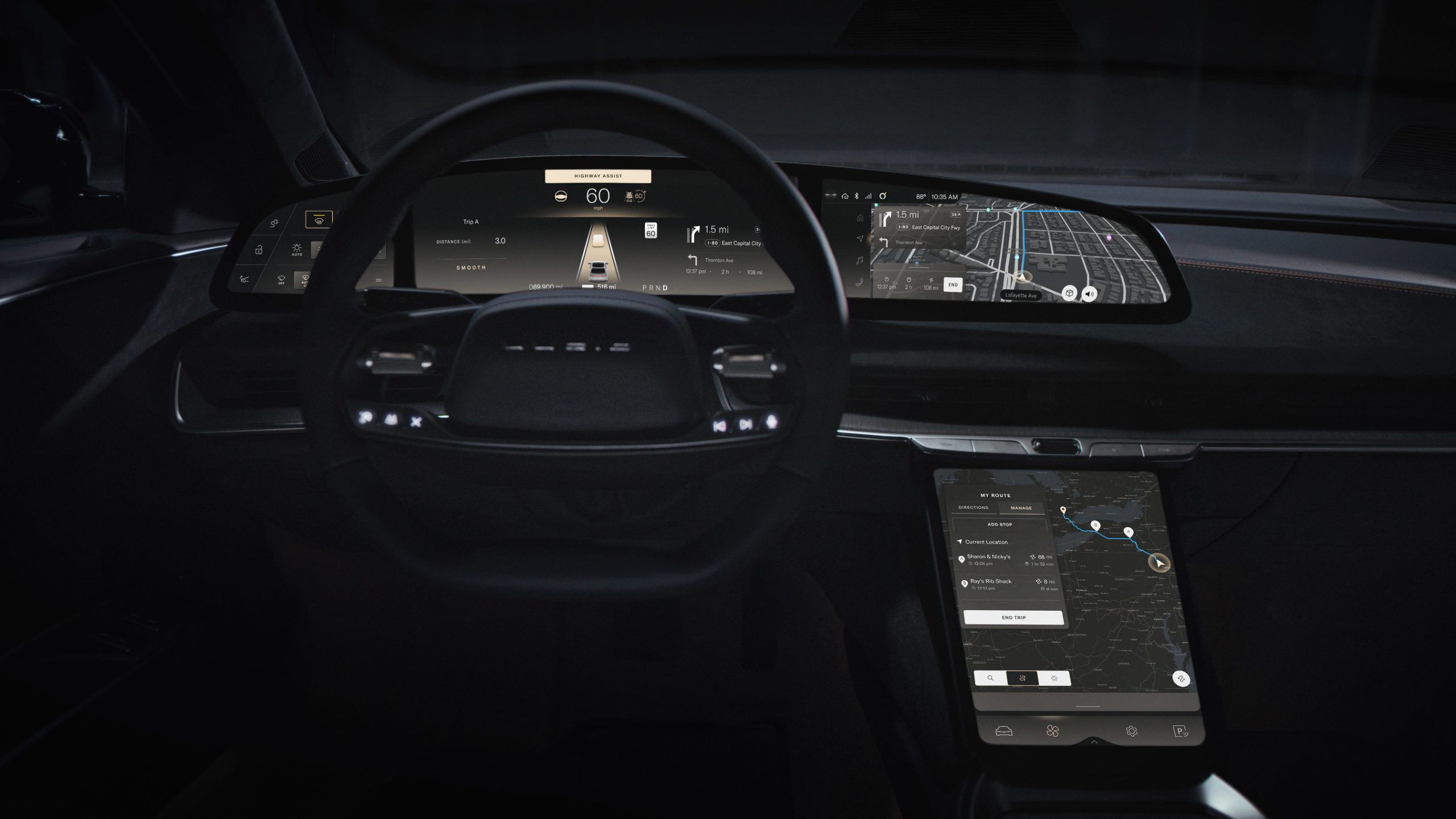
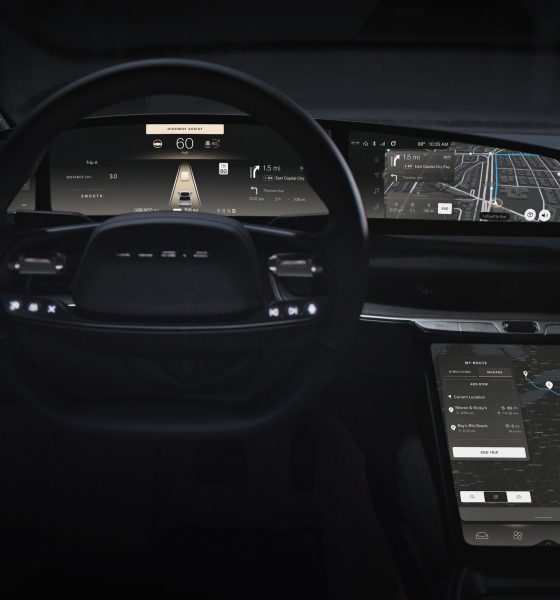
News
Lucid launches its biggest OTA update yet with ‘hundreds’ of new features
Lucid announced this morning it had launched Lucid UX 2.0, its most extensive and biggest software update, which packs “hundreds of updates and new features for every Lucid Air on the road.”
Designed as a “true software-defined vehicle,” Lucid says the Air will benefit vastly from the array of new improvements. Including new features like “Instant-On” Glass Cockpit and Pilot Panel Displays, the launch of “Highway Assist” for DreamDrive, and redesigned on-screen layouts, Lucid said the complementary update makes the vehicle more enjoyable and easier to use.
A defining moment for our software-defined vehicles. Our latest software update, Lucid UX 2.0, is our most significant rollout yet. Learn about our new features and overall improvements. #DreamAheadhttps://t.co/yvLFpBPchz pic.twitter.com/w0Cdbi0MNS
— Lucid Motors (@LucidMotors) October 13, 2022
Since launching deliveries of the Air last year, Lucid has worked to ramp production and solve supply chain issues that have plagued the automaker’s progress. Yesterday, the company announced one of its strongest quarters to date, with 2,282 units produced last quarter with 1,398 delivered.
It has been a bright spot on a relatively disappointing year as Lucid has trimmed delivery projections for 2022 on two occasions. First aiming for 20,000 vehicles produced in 2022, then slashing to between 12,000 and 14,000 vehicles. In August, Lucid pushed this goal back to between 6,000 and 7,000 vehicles.
Software Improvements
Lucid’s early EV software has been hit-and-miss, with some owners detailing various issues with basic functions that have made the vehicles stressful to drive. However, the automaker has developed a vast update that starts at the heart of software. SVP of Digital for Lucid, Michael Bell, detailed the improvements:
“This extensive software update, comprising tens of millions of new lines of source code across nearly every updateable computer in the vehicle, is achievable because the Lucid Air was engineered from the start with the capability to get better over time. Thanks to our integrated software and hardware engineering, Lucid has the in-house technical depth to enhance our vehicles long after they leave the assembly line.”
The Lucid UX 2.0 is completely designed and fabricated on owner feedback and ideas, Derek Jenkins, Senior VP of Design and Brand said. “Lucid’s truly innovative user interface becomes easier to use and even more aesthetically beautiful in each iteration, delivered seamlessly over-the-air to the vehicle.”
Glass Cockpit and Pilot Panel Displays
- “Instant-on” displays, so the car is ready to drive as soon as the driver sits down and buckles up.
- New on-screen layout for the Glass Cockpit display, moving the controls for the most-used apps like Home, Navigation, Media, and Phone to make Lucid UX more ergonomically friendly than ever.
- Updated Navigation and maps, with turn-by-turn directions now appearing on the center display directly ahead of the driver.
- More-intelligent prediction of remaining range, so drivers know even better what they can expect on the road.
- Do more with Alexa Built-In voice control, such as change the climate control settings for the rear seat.
- A more user-friendly browsing experience for third-party media apps, making it easier to see options, select favorite tunes, and start listening more quickly.
DreamDrive and Advanced Driver Assistance Systems
- Highway Assist with active lane centering and adaptive cruise control, allowing for even greater driving comfort on long journeys.
- Rear Pedestrian Collision Protection is now also enabled when the vehicle is in Drive and rolling backwards.
- Improvements to visual cues for Park Distance Warning feature.
Intelligent Micro Lens Array Headlights
- High Beam Assist that detects not only other vehicles, but other sources of nearby light, and automatically switches to low beams when most appropriate.
- Automatic headlight leveling with sensor-based adjustments for height and vehicle angle in relation to the ground.
Vehicle Entry and Exit
- New De-Ice Mode combines defrost, automatic wiper blade movement, and wiper fluid to clear ice that may be obstructing the view through the windshield.
- A number of measures to make automatic locking and unlocking simpler, more intuitive, and more responsive with both the key fob and Mobile Key, as well as additional user-customizable settings.
Disclosure: Joey Klender is not an LCID shareholder.
I’d love to hear from you! If you have any comments, concerns, or questions, please email me at joey@teslarati.com. You can also reach me on Twitter @KlenderJoey, or if you have news tips, you can email us at tips@teslarati.com.

Cybertruck
Tesla confirms date when new Cybertruck trim will go up in price
Tesla has officially revealed that this price will only be available until February 28, as the company has placed a banner atop the Design Configurator on its website reflecting this.
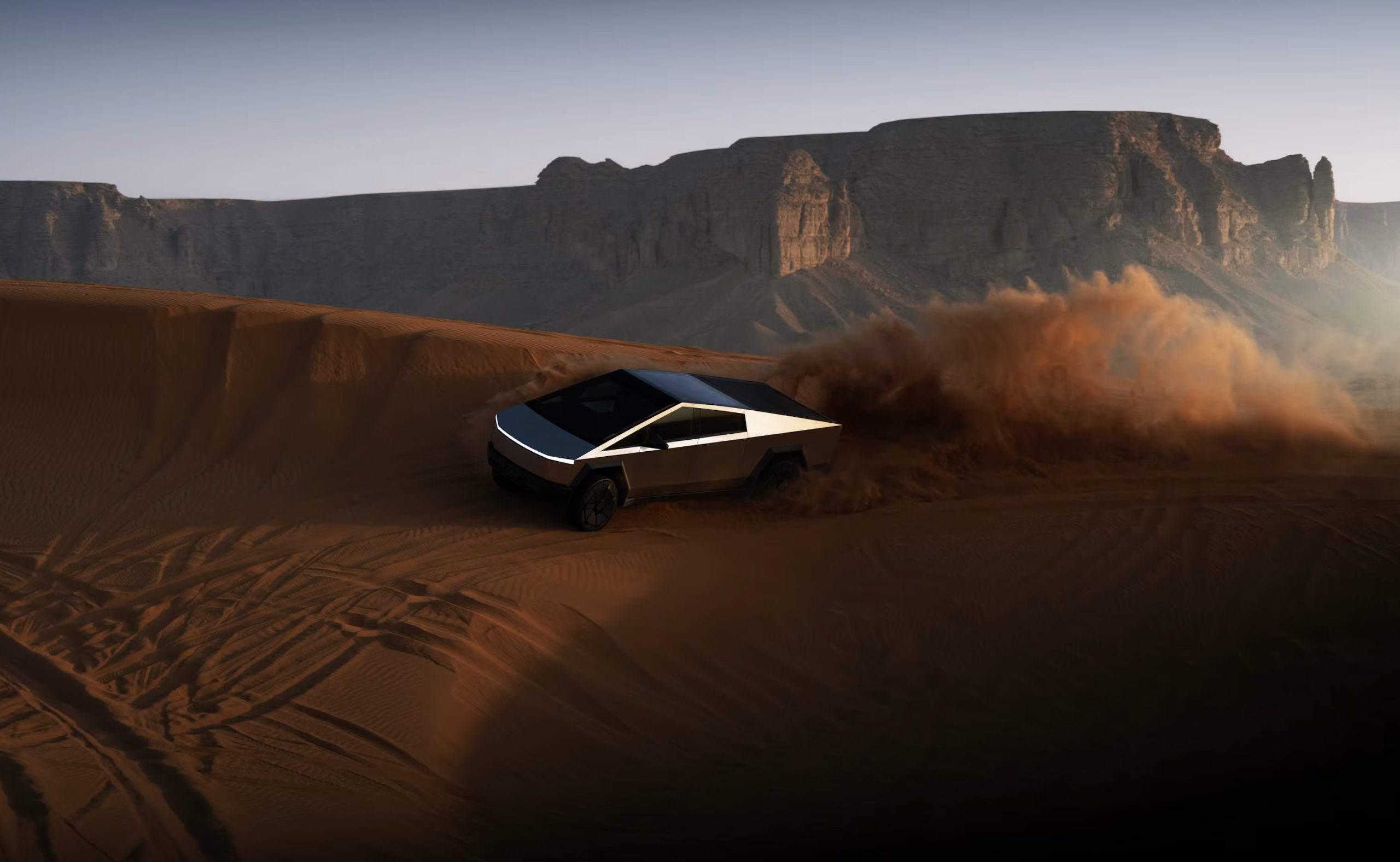
Tesla has confirmed the date when its newest Cybertruck trim level will increase in price, after CEO Elon Musk noted that the All-Wheel-Drive configuration of the all-electric pickup would only be priced at its near-bargain level for ten days.
Last week, Tesla launched the All-Wheel-Drive configuration of the Cybertruck. Priced at $59,990, the Cybertruck featured many excellent features and has seemingly brought some demand to the pickup, which has been underwhelming in terms of sales figures over the past couple of years.
Tesla launches new Cybertruck trim with more features than ever for a low price
When Tesla launched it, many fans and current owners mulled the possibility of ordering it. However, Musk came out and said just hours after launching the pickup that Tesla would only keep it at the $59,990 price level for ten days.
What it would be priced at subsequently was totally dependent on how much demand Tesla felt for the new trim level, which is labeled as a “Dual Motor All-Wheel-Drive” configuration.
Tesla has officially revealed that this price will only be available until February 28, as the company has placed a banner atop the Design Configurator on its website reflecting this:
NEWS: Tesla has officially announced that the price of the new Cybertruck Dual-Motor AWD will be increasing after February 28th. pic.twitter.com/vZpA521ZwC
— Sawyer Merritt (@SawyerMerritt) February 24, 2026
Many fans and owners have criticized Tesla’s decision to unveil a trim this way, and then price it at something, only to change that price a few days later based on how well it sells.
Awful way to treat customers – particularly when they already sent out a marketing email announcing the $59,990 truck…with zero mention of it being a limited-time offer.
— Ryan McCaffrey (@DMC_Ryan) February 24, 2026
It seems the most ideal increase in price would be somewhere between $5,000 and $10,000, but it truly depends on how many orders Tesla sees for this new trim level. The next step up in configuration is the Premium All-Wheel-Drive, which is priced at $79,990.
The difference between the Dual Motor AWD Cybertruck and the Premium AWD configuration comes down to towing, interior quality, and general features. The base package is only capable of towing up to 7,500 pounds, while the Premium can handle 11,000 pounds. Additionally, the seats in the Premium build are Vegan Leather, while the base trim gets the textile seats.
It also has only 7 speakers compared to the 15 that the Premium trim has. Additionally, the base model does not have an adjustable ride height, although it does have a coil spring with an adaptive damping suspension package.
Cybertruck
Tesla set to activate long-awaited Cybertruck feature
Tesla will officially activate the Active Noise Cancellation (ANC) feature on Cybertruck soon, as the company has officially added the feature to its list of features by trim on its website.
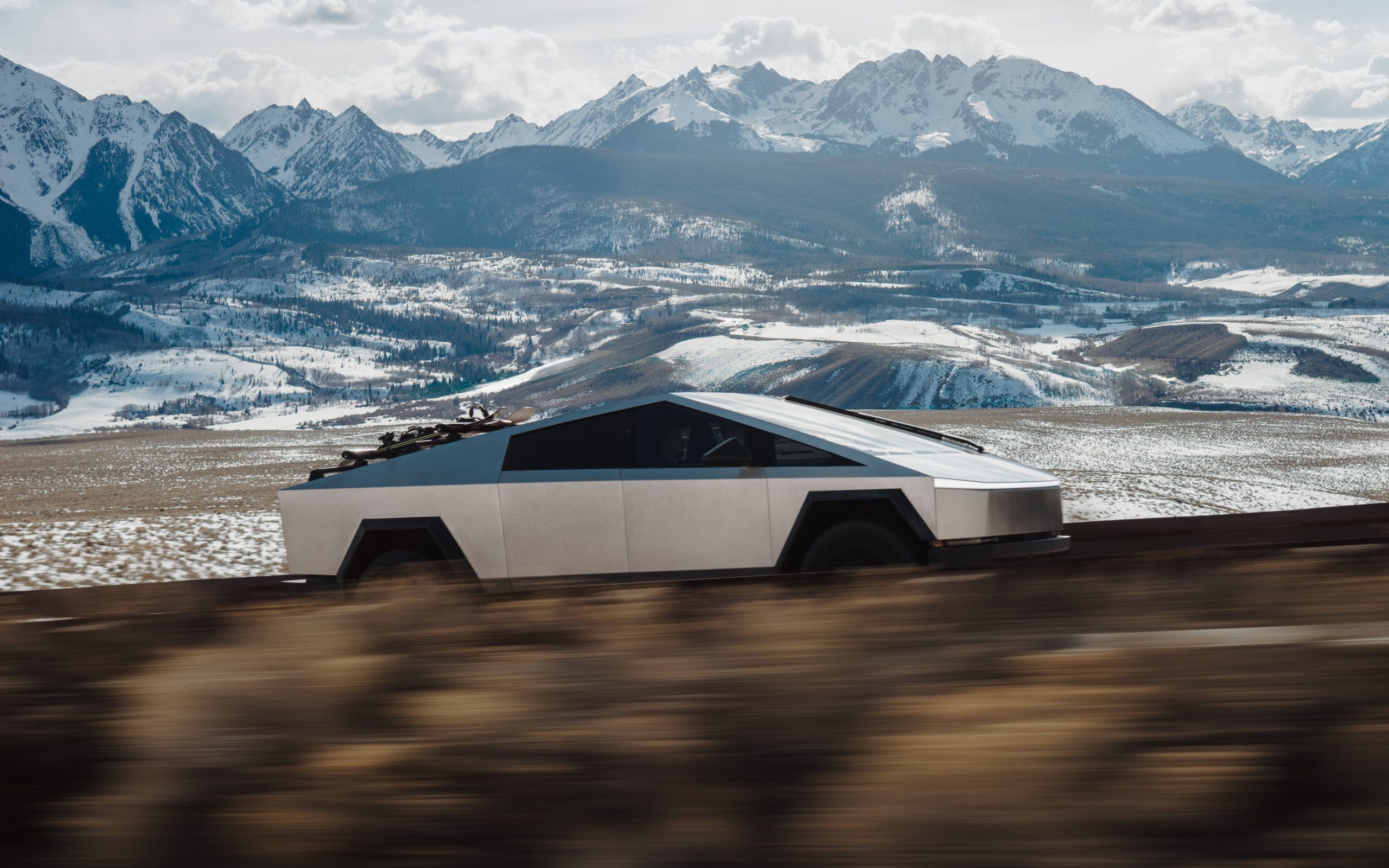
Tesla is set to activate a long-awaited Cybertruck feature, and no matter when you bought your all-electric pickup, it has the hardware capable of achieving what it is designed to do.
Tesla simply has to flip the switch, and it plans to do so in the near future.
Tesla will officially activate the Active Noise Cancellation (ANC) feature on Cybertruck soon, according to Not a Tesla App, as the company has officially added the feature to its list of features by trim on its website.
Tesla rolls out Active Road Noise Reduction for new Model S and Model X
The ANC feature suddenly appeared on the spec sheet for the Premium All-Wheel-Drive and Cyberbeast trims, which are the two configurations that have been delivered since November 2023.
However, those trims have both had the ANC disabled, and although they are found in the Model S and Model X, and are active in those vehicles, Tesla is planning to activate them.
In Tesla’s Service Toolbox, it wrote:
“ANC software is not enabled on Cybertruck even though the hardware is installed.”
Tesla has utilized an ANC system in the Model S and Model X since 2021. The system uses microphones embedded in the front seat headrests to detect low-frequency road noise entering the cabin. It then generates anti-noise through phase-inverted sound waves to cancel out or reduce that noise, creating quieter zones, particularly around the vehicle’s front occupants.
The Model S and Model X utilize six microphones to achieve this noise cancellation, while the Cybertruck has just four.
Tesla Cybertruck Dual Motor AWD estimated delivery slips to early fall 2026
As previously mentioned, this will be activated through a software update, as the hardware is already available within Cybertruck and can simply be activated at Tesla’s leisure.
The delays in activating the system are likely due to Tesla Cybertruck’s unique design, which is unlike anything before. In the Model S and Model X, Tesla did not have to do too much, but the Cybertruck has heavier all-terrain tires and potentially issues from the aluminum castings that make up the vehicle’s chassis, which are probably presenting some challenges.
Unfortunately, this feature will not be available on the new Dual Motor All-Wheel-Drive configuration, which was released last week.
News
Tesla Model S and X customization options begin to thin as their closure nears
Tesla’s Online Design Studio for both vehicles now shows the first color option to be listed as “Sold Out,” as Lunar Silver is officially no longer available for the Model S or Model X. This color is exclusive to these cars and not available on the Model S or Model X.
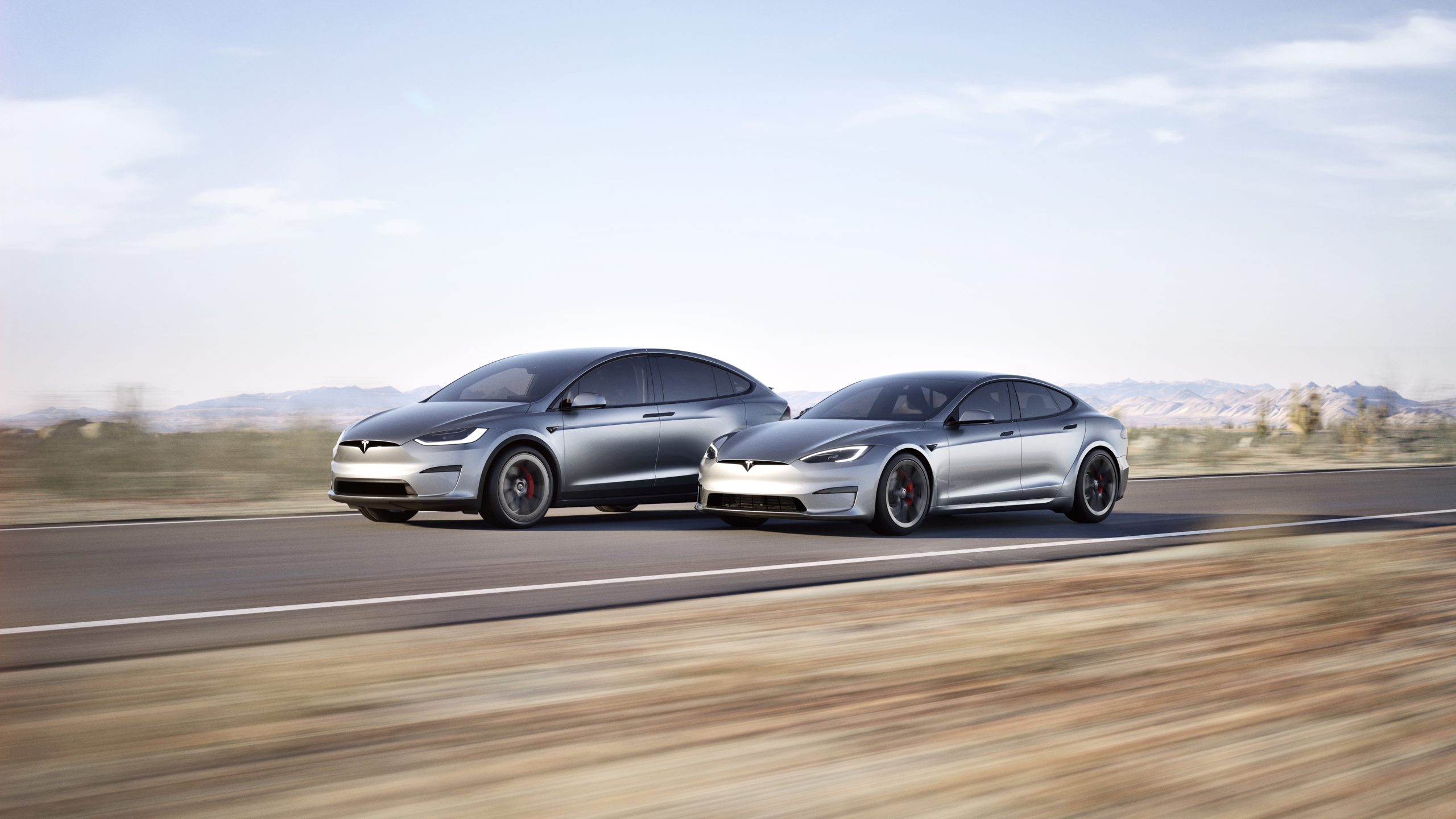
Tesla Model S and Model X customization options are beginning to thin for the first time as the closure of the two “sentimental” vehicles nears.
We are officially seeing the first options disappear as Tesla begins to work toward ending production of the two cars and the options that are available to those vehicles specifically.
Tesla’s Online Design Studio for both vehicles now shows the first color option to be listed as “Sold Out,” as Lunar Silver is officially no longer available for the Model S or Model X. This color is exclusive to these cars and not available on the Model S or Model X.
🚨 Tesla Model S and Model X availability is thinning, as Tesla has officially shown that the Lunar Silver color option on both vehicles is officially sold out
To be fair, Frost Blue is still available so no need to freak out pic.twitter.com/YnwsDbsFOv
— TESLARATI (@Teslarati) February 25, 2026
Tesla is making way for the Optimus humanoid robot project at the Fremont Factory, where the Model S and Model X are produced. The two cars are low-volume models and do not contribute more than a few percent to Tesla’s yearly delivery figures.
With CEO Elon Musk confirming that the Model S and Model X would officially be phased out at the end of the quarter, some of the options are being thinned out.
This is an expected move considering Tesla’s plans for the two vehicles, as it will make for an easier process of transitioning that portion of the Fremont plant to cater to Optimus manufacturing. Additionally, this is likely one of the least popular colors, and Tesla is choosing to only keep around what it is seeing routine demand for.
During the Q4 Earnings Call in January, Musk confirmed the end of the Model S and Model X:
“It is time to bring the Model S and Model X programs to an end with an honorable discharge. It is time to bring the S/X programs to an end. It’s part of our overall shift to an autonomous future.”
Fremont will now build one million Optimus units per year as production is ramped.








